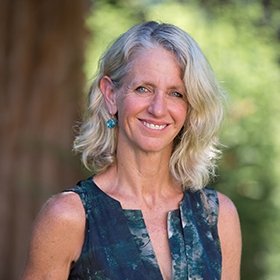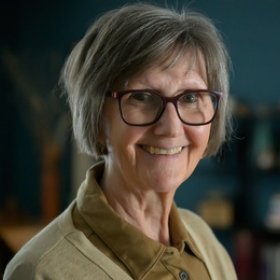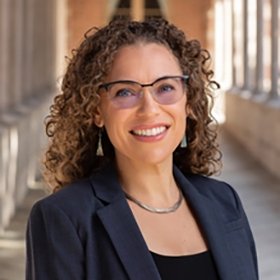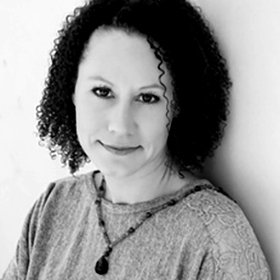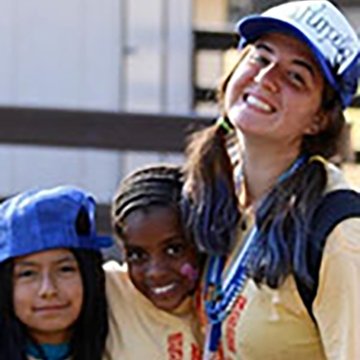
Minor in Education and Society
This program is designed for full-time USC undergraduate students who are interested in exploring a topic in the field of education.
Education is the door to participation in social, economic and political opportunities across the globe. Yet, inequities persist in educational access and quality. Explore the key issues impacting teaching and learning in the 21st century with the goal of creating equitable opportunities for all.
Program Overview
The Education and Society minor will introduce you to perspectives on education locally, nationally and internationally and highlight education’s importance in promoting equitable opportunities and developing engaged citizens for more just societies.
Through this program, you will:
- Prepare to make informed recommendations for change in schools and educational policies.
- Understand some of the latest research, theories and practices to make schools and society more equitable.
- Design a research proposal to complete as part of an honor’s thesis or undergraduate research project.
Skills
- Research methods
- Policy debate and analysis
- Critical thinking and problem-solving
Careers
- Producer, director or writer of educational film and television
- Educational video game, toy and product design for children
- Urban planner, policy analyst
- Healthcare and public health professional
- Advertising and marketing specialist
- Lawyer
- Educational writer
- Therapist, psychologist or social worker
- Teacher or K-12 administrator
- Curriculum developer
- Educational researcher
- Psychologist
Courses
The program consists of two core courses and two concentration courses specific to the minor.
Concentration
EDUC 421: Global Issues: Impact on Educational Outcomes (4 units)
Situate United States education within the global context and examine the impact of global issues on education in the 21st century. Research international, national and local issues and explore possible solutions, with a focus on local, community formal and informal educational settings and the connections of global issues to educational outcomes within those settings. For classrooms and community organizations in the United States and around the world, closing the door on these issues robs students of future potential participation in social, economic and political arenas locally, nationally and internationally.
EDUC 423: Unrealized Promise and Hope for Education in the 21st Century (4 units)
Review United States education in a global context to investigate the relationship between the promise of education and the frequent failure to reach desired outcomes. Investigate the social, political and literacy theories influencing how educational promise has been historically realized and derailed at the national level. Examine the role of twenty-first century skills in shifting educational paradigms, focusing on how the technologies of new media and literacies can be used to design social futures.
Core
EDUC 422: Equity and Education Foundations (4 units)
Examine the relationship between education and society by identifying intractable issues denying access to quality education by race, class and gender. Critically examine educational change in United States public schooling from historical and contemporary perspectives, with an emphasis on the potential of current efforts that advance or limit social and educational justice. Many students will apply theory to describe implications for change in schools or education-related organizations that they will go on to work with in their future careers as educators, policymakers or researchers.
EDUC 426: Educational Inquiry for Equity (4 units)
This course introduces students to educational inquiry with a skills-based approach that will prepare students to conduct research that addresses challenges to educational equity. Students will acquire knowledge and skills to be competent consumers and producers of educational research in their future professional practices. Many students develop research proposals in this course that inform their undergraduate research theses, research fellowship applications, and future graduate studies.
Requirements
To enroll in a USC Rossier undergraduate minor, you must:
- Be a current, full-time USC undergraduate student
- Maintain a 2.75 GPA or higher
- Apply to the minor
- Obtain departmental clearance (D-clearance) from the USC MAT and MAT-TESOL program office
Progressive Degree Pathway
If you plan to pursue a Master of Arts in Teaching (MAT) or Master of Arts in Teaching - Teaching English to Speakers of Other Languages (MAT-TESOL) degree in the future, you have the option to apply to the Progressive Degree program and waive courses in the MAT or MAT-TESOL program with courses completed in the Education and Society minor. The Progressive Degree program can shorten the time to obtain your master’s degree and allow you to avoid paying graduate tuition rates for courses completed as an undergraduate student.
| Courses completed in the Education and Society minor | Waived courses in the MAT program | Waived courses in the MAT-TESOL program |
|---|---|---|
| EDUC 422: Education and Social Change in the Education and Society minor (4 units) | EDUC 655 Social Foundations of Language Education (4 units) | |
| EDUC 423: Unrealized Promise and Hope for Education in the 21st Century in the Education and Society minor (4 units) |
EDUC 679: Blended Learning Experiences for Students in Urban Schools (2 units) |
EDUC 639 Approaches and Strategies of Language Teaching (4 units) |
Learn more about the MAT Progressive Degree or MAT-TESOL Progressive degree >
Program Details
Degree Awarded
Estimated Length
Varies based on your individual course plan
Units
Program Cost
N/A
Modality
- On Campus
Next Deadline
Rolling
Take the Next Step
Faculty
Our professors are experienced practitioners who are committed to fostering your professional growth both inside and outside the classroom
From Our Alumni
Program Contact


